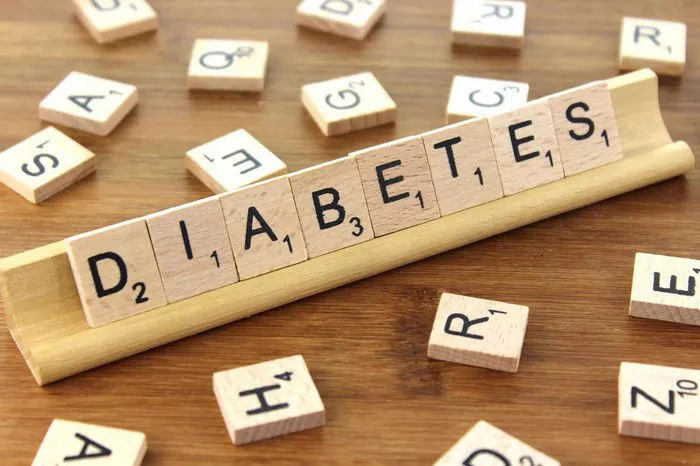Introduction
Living with diabetes requires careful attention to diet and lifestyle choices to maintain blood sugar levels within a healthy range. While there are many foods that can support overall health and blood sugar control, there are also certain foods that individuals with diabetes should avoid or limit. In this article, we will explore these foods in detail and discuss the importance of making informed dietary choices for diabetes management.
Understanding Diabetes
Diabetes is a chronic condition characterized by elevated levels of blood sugar, either due to insufficient insulin production (Type 1 diabetes) or the body’s inability to effectively use insulin (Type 2 diabetes). Proper management of diabetes is essential to prevent complications such as heart disease, kidney damage, nerve damage, and vision problems.
The Role of Diet in Diabetes Management
Diet plays a crucial role in managing diabetes. By making healthy food choices, individuals with diabetes can control their blood sugar levels, reduce the risk of complications, and improve overall well-being. A balanced diet that focuses on whole, nutrient-dense foods can help stabilize blood sugar levels and promote overall health.
Foods to Avoid
While there is no one-size-fits-all approach to diet for diabetes management, there are certain foods that should generally be avoided or limited. These include:
1. Sugar-Sweetened Beverages: Sugary drinks such as soda, fruit juice, energy drinks, and sweetened tea can cause rapid spikes in blood sugar levels. They provide empty calories and little to no nutritional value.
2. Sugary Snacks and Desserts: Foods high in added sugars, such as candy, cookies, cakes, pastries, and ice cream, should be consumed sparingly. These foods can lead to significant increases in blood sugar levels and contribute to weight gain.
3. Refined Carbohydrates: Foods made with refined grains, such as white bread, white rice, and regular pasta, can cause blood sugar levels to rise quickly. These refined carbohydrates lack fiber and essential nutrients found in whole grains.
4. Processed Foods: Processed foods, including packaged snacks, fast food, frozen meals, and prepackaged meals, often contain high amounts of refined sugars, unhealthy fats, and sodium. These foods can negatively impact blood sugar control and overall health.
5. High-Fat Dairy Products: Full-fat dairy products such as whole milk, cheese, and cream are high in saturated fat, which can increase the risk of heart disease and negatively affect insulin sensitivity. Opt for low-fat or fat-free dairy options instead.
6. Fried Foods: Fried foods, such as french fries, fried chicken, and potato chips, are high in unhealthy fats and calories. Consuming these foods regularly can lead to weight gain and worsen insulin resistance.
7. Sweetened Condiments and Sauces: Condiments and sauces such as ketchup, barbecue sauce, and sweet chili sauce often contain added sugars. These hidden sources of sugar can contribute to elevated blood sugar levels when consumed in excess.
8. High-Sodium Foods: Processed foods, canned soups, deli meats, and salty snacks are often high in sodium. Consuming too much sodium can increase the risk of high blood pressure, a common complication of diabetes.
It’s important for individuals with diabetes to read food labels carefully and be mindful of hidden sources of sugar, unhealthy fats, and sodium in processed and packaged foods. Choosing whole, unprocessed foods as much as possible and preparing meals at home allows for greater control over ingredients and portion sizes.
Healthy Alternatives
Instead of foods to avoid, focus on incorporating nutrient-dense foods that support blood sugar control and overall health. Some healthy alternatives include:
1. Non-Starchy Vegetables: Fill your plate with colorful vegetables such as leafy greens, broccoli, cauliflower, peppers, and tomatoes. These foods are low in calories and carbohydrates and rich in vitamins, minerals, and fiber.
2. Lean Proteins: Choose lean protein sources such as skinless poultry, fish, tofu, tempeh, beans, lentils, and low-fat dairy products. Protein helps stabilize blood sugar levels and promotes feelings of fullness.
3. Whole Grains: Opt for whole grains such as quinoa, brown rice, barley, oats, and whole wheat bread and pasta. Whole grains are rich in fiber, which helps slow the absorption of sugar into the bloodstream.
4. Healthy Fats: Include sources of healthy fats in your diet, such as avocados, nuts, seeds, olive oil, and fatty fish like salmon and mackerel. Healthy fats help improve insulin sensitivity and support heart health.
5. Fruits in Moderation: While fruits contain natural sugars, they also provide essential nutrients and fiber. Choose whole fruits over fruit juices and limit portion sizes to manage blood sugar levels.
6. Herbs and Spices: Flavor your meals with herbs and spices such as garlic, ginger, cinnamon, turmeric, and chili powder. These ingredients add flavor without adding extra calories, sugar, or sodium.
7. Hydration: Stay hydrated by drinking plenty of water throughout the day. Water is essential for overall health and can help prevent dehydration, which can affect blood sugar levels.
8. Meal Planning and Portion Control: Plan your meals and snacks ahead of time to ensure balanced nutrition and portion control. Eating regular, well-balanced meals can help prevent blood sugar spikes and crashes.
Conclusion
Managing diabetes through diet requires making informed food choices and adopting healthy eating habits. By avoiding or limiting foods high in sugar, refined carbohydrates, unhealthy fats, and sodium, individuals with diabetes can better control their blood sugar levels and reduce the risk of complications. Focus on incorporating nutrient-dense foods such as non-starchy vegetables, lean proteins, whole grains, healthy fats, and fruits in moderation. Consulting with a registered dietitian or healthcare provider can provide personalized guidance and support for developing a diabetes-friendly meal plan that fits your individual needs and lifestyle. With mindful eating and regular physical activity, you can take control of your diabetes and improve your overall health and well-being.
























